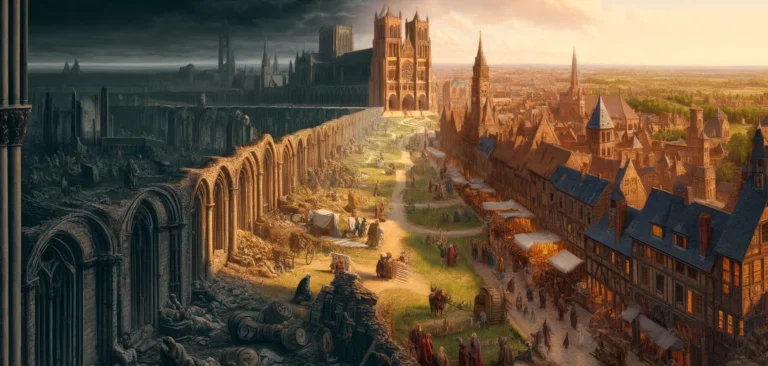The correct term to use is “Middle Ages,” or the adjective medieval. The term “Dark Ages” has largely been retired in scholarly circles. Now, I’m actually in the minority on this issue. I think the adjective “dark” was well deserved, especially for Europe.
Historically, the term Dark Ages was used to describe the period in Europe between the 5th and 14th centuries, a religiously draconian time marked by economic, cultural, and scientific stagnation. The primary historical marker was a shift to organized religions worldwide. While tolerance ebbed and flowed in antiquity, it was a key virtue, especially for the scholarly. However, as our understanding of history has evolved and the focus shifted to a more inclusive worldwide view, so too has our terminology. Most modern historians argue that the term “Dark Ages” is too focused on dark elements in Europe.
I am not advocating for the return of the label “Dark Ages,” as I believe labels naturally evolve. This is particularly important when labels carry negative connotations. My argument for adding the adjective “dark” stems from the idea that the worldwide spread of organized religion caused a regression in human thought. Many well-known facts were lost.
Perhaps I go too far as one element is rarely responsible for worldwide events. However, just as the printing press is a single invention that changed the world, I argue that organized religion did too—and not always for the best. To better understand my view on this “Our Time” debate, take the 15-minute deep dive: The “Dark” Middle Ages.









